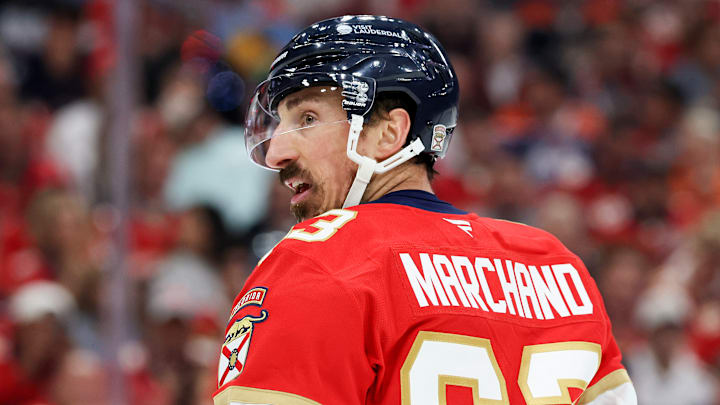There has been a flurry of discourse recently about whether state income tax has an effect on the way NHL players and teams conduct their business, and several players have now confirmed that taxes do have an impact on hockey operations.
The conversation has previously reached Commissioner Gary Bettman, who dismised the concerns about state income tax as "ridiculous" to NHL on TNT during the 2025 Stanley Cup Final.
However, multiple NHL athletes are now speaking out about how the income tax debate affects where they want to play. One did so anonymously to The Athletic in their annual player polls conducted prior to the start of the NHL season. That skater, who currently plays in a no-tax state, said he would only want to play for other teams where he would not have to pay state income tax -- specifically, the Dallas Stars and Vegas Golden Knights.
“I’d like to keep my salary, and also those two teams have a chance to win the Cup and are good places to live, too, from what I gathered," the player told The Athletic.
Another team that could fall into the category of perennial contenders in tax-free states is the Florida Panthers, who have helped ignite the debate following their back-to-back Stanley Cup wins. One of their star forwards believes that the team wouldn't be the same if they were limited by state income taxes.
Brad Marchand speaks out on how income tax impacted his signing with the Panthers
At the start of Florida's training camp, forward Brad Marchand admitted to the media that he didn't think he would be coming back to Sunrise for a second season after helping the team win the 2025 championship.
He's not wrong for believing that -- the Panthers were up against the cap in a hard way headed into free agency on July 1. Three of the team's most impactful skaters were in need of new contracts: Marchand, Aaron Ekblad, and Sam Bennett. All of them were due for a hefty payday, too, making Marchand's concerns completely reasonable.
But Panthers GM Bill Zito achieved the impossible and inked all three skaters to new deals: Marchand for six years at $5.25 million AAV, Bennett for eight years at $8 million per year, and Ekblad at $6.1 million for each of the next eight seasons.
What made it possible for Zito to pull off these cap gymnastics? According to Marchand, it was the lack of state income tax in Florida.
“If we’re not in a no-tax state it wouldn’t work out, probably for two guys. Two guys probably would be leaving in that situation,” Marchand said to reporters. “That’s a benefit that this team has that we able to utilize and make work.”
The Panthers are just one of six teams that skate in tax-free states, along with the Tampa Bay Lightning, Vegas Golden Knights, Dallas Stars, Nashville Predators, and Seattle Kraken. Not all of them are contenders to the same degree -- namely, the Preds and Kraken have fallen off in terms of success in the standings -- but it calls into question whether these teams have an advantage when it comes to sculpting the roster.
The answer, according to Marchand, is probably. Still, league officials like Deputy Commissioner Bill Daly say that there are a number of factors that play into where a skater chooses to sign that "have nothing to do with the tax situation in that market."
It may not be a consensus, as many NHLers have not yet spoken out about the tax debate, but these players in particular have made it clear that taxes do factor into how a team is built.
